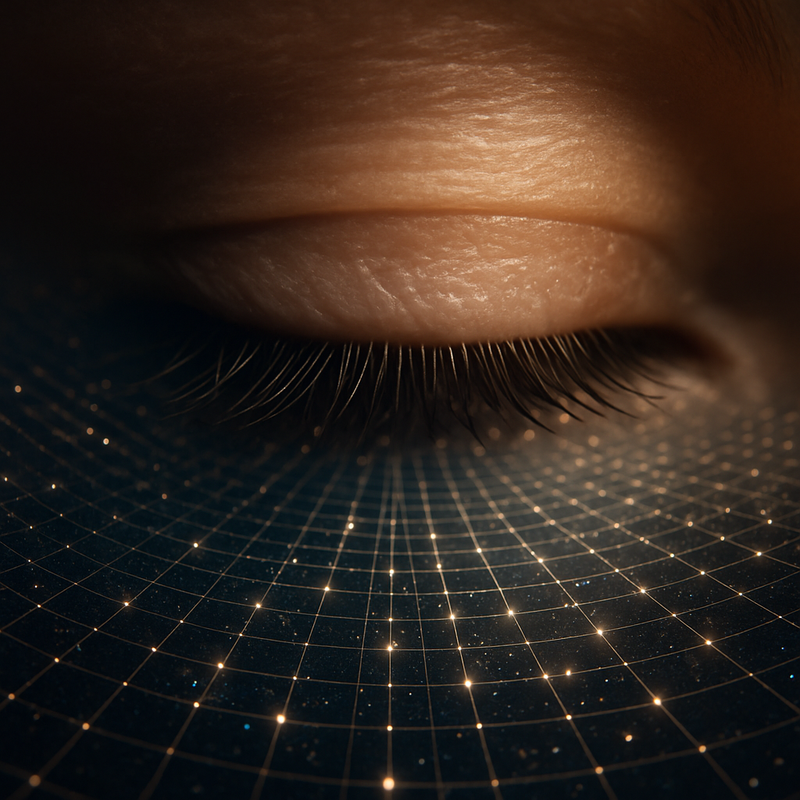A human blink is nothing. We barely register it — just 300 milliseconds on average, a casual flicker in our day. Yet physics tells us that within that blink, a universe of smaller moments passes by, so small they almost defy comprehension.
The smallest meaningful slice of time, according to modern physics, is the Planck time: 5.39 × 10^-44 seconds. Below this threshold, the very fabric of reality — space, time, causality — ceases to make sense. It’s the “frame rate” of the universe, the indivisible tick of the cosmic clock.
Now compare that to your blink. Divide 0.3 seconds by a single Planck time, and you get roughly 5.57 × 10^40. That’s fifty-five octillion trillion trillion Planck moments packed into the space of a single flutter of your eyelids.
Think about that: in the time it takes to blink, the universe has already computed a staggering number of fundamental updates. Every quantum fluctuation, every photon exchange, every shift in the gravitational field has rippled through spacetime on scales so fine we can never directly perceive them.
This is where physics brushes against philosophy. To us, a blink is brief. To the universe, it’s practically forever. The mismatch between human perception and fundamental reality shows just how strange “time” really is.
Maybe this is why the idea of “no time, only change” resonates. A blink feels instantaneous — yet within it lies an ocean of structure, 10^40 pulses of change happening beneath our notice. Entropy marches forward in unfathomably tiny steps, and we surf over it, thinking we are steady.
So the next time you blink, remember: in that instant, the universe has already refreshed itself beyond counting. You closed your eyes on one cosmos and opened them on another.

